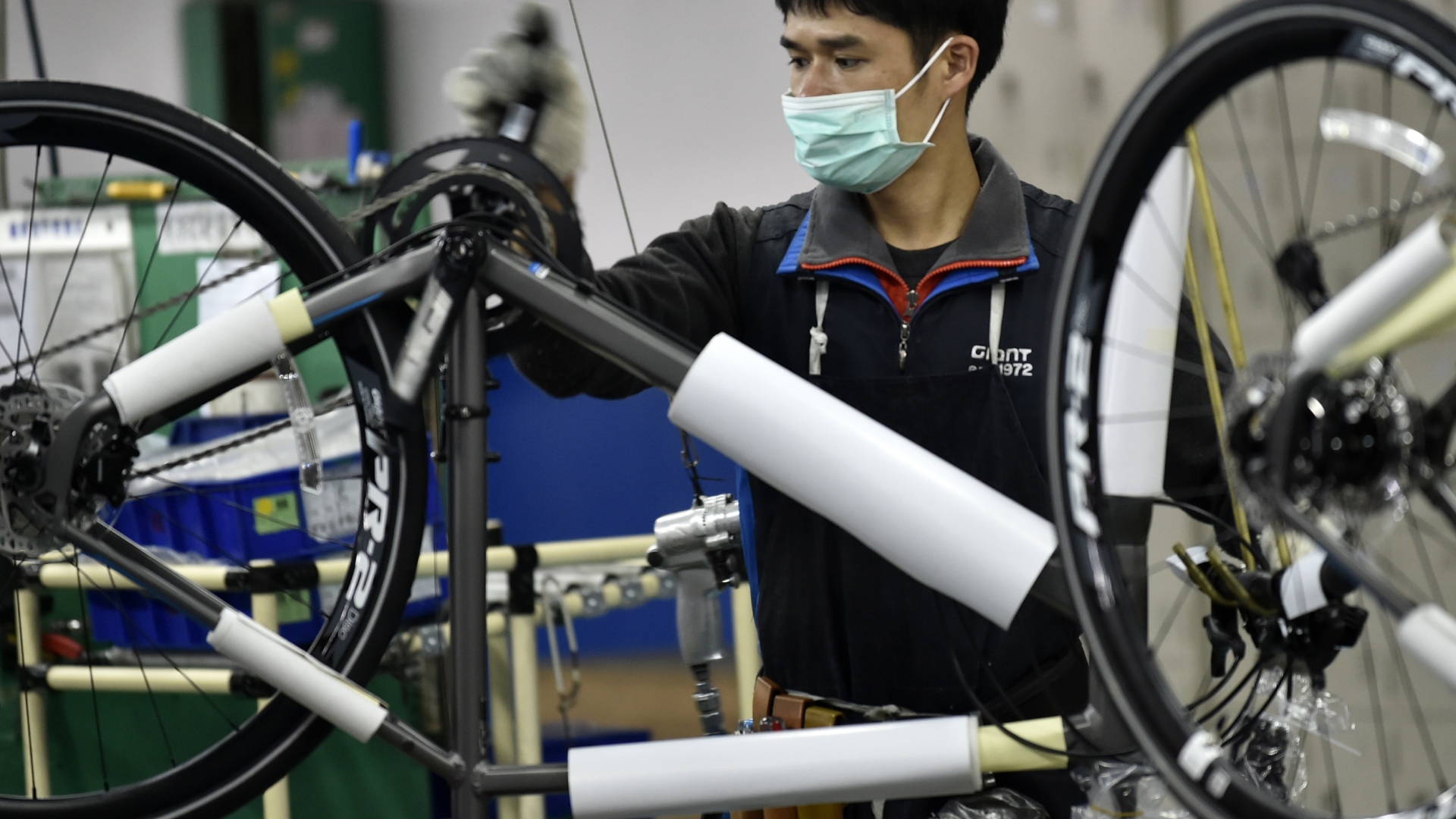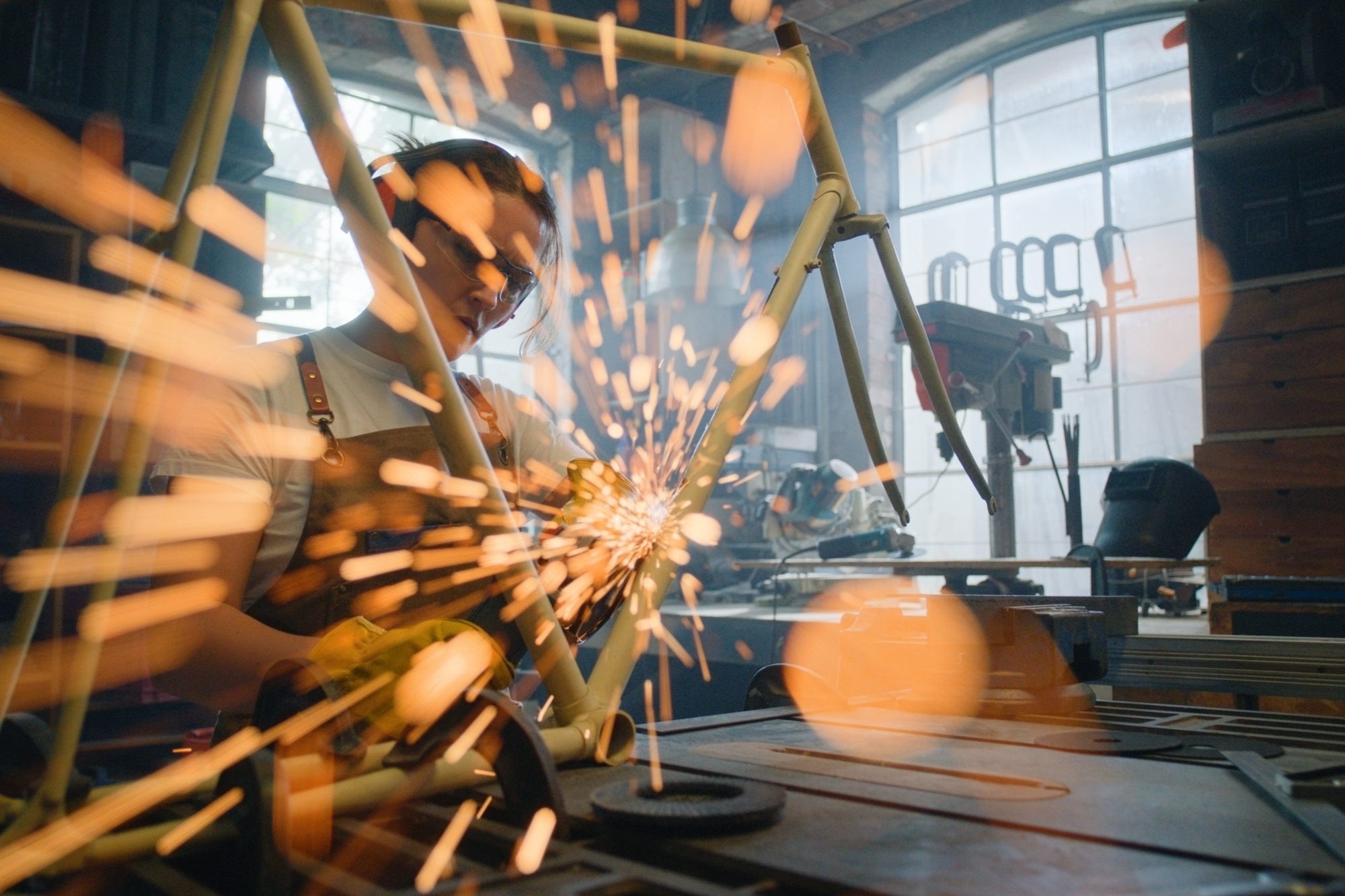
The US bike industry could be facing a new set of economic challenges as President Trump expands tariffs on imported steel and aluminium.
In two separate executive orders signed on 10 February, 2025, Trump expanded the Section 232 tariffs on steel and aluminium originally imposed in 2018. Aluminium tariffs will increase from 10% to 25%, while steel tariffs will remain at 25%. The measures also eliminate previous country-specific exemptions and quotas, applying the tariffs universally to imports from all nations. Additionally, the orders expand the list of affected steel and aluminium derivative products, though specifics on these products have not yet been detailed.
These changes will take effect on 12 March, 2025, and could have immediate consequences for the bicycle industry.
How tariff expansions could impact the bicycle industry

Tariffs are taxes imposed on goods and raw materials imported from other countries. These measures aim to boost U.S. steel and aluminium production and encourage companies to use U.S.-made materials by making foreign products more expensive. However, the bicycle industry relies heavily on foreign imports.
In 2022 alone, the U.S. imported more than $2.2 billion worth of bicycles and components, with the majority coming from China. For years, bicycles and e-bikes were exempt from high tariffs, but those exclusions expired in June 2023. To avoid steep taxes targeted at China, many bike and component manufacturers have been shifting production to countries with lower tariffs. However, under Trump's latest executive order, this strategy is no longer advantageous as the tariffs will now apply universally to imports from all nations.
It’s important to note that raw materials and (partly) finished products are taxed differently.
Starting March 12, raw aluminium will see a tariff increase from 10% to 25%, making aluminium significantly more expensive unless it is manufactured in the United States. Steel tariffs will remain at 25%, but with all exemptions removed, companies that had previously relied on imports from major suppliers like Canada or Mexico will now face higher costs as well.
The executive orders state that the government also intends to expand the list of steel and aluminium derivative products (finished goods) that are subject to tariffs. However, it’s unclear at this time whether specific bicycle components—such as frames, rims and spokes—will be affected.
The measures do contain a new exemption for goods made from U.S.-produced steel and aluminium, which could be good news for manufacturers that source their materials domestically.
The overall impact of these tariffs remains uncertain. Some industry leaders caution that consumers will ultimately bear the burden of rising manufacturing costs, while others believe it is too early to sound the alarm.
Specialized, a major U.S. bicycle brand that outsources production to Taiwan and China, declined to speculate, stating: "We are unable to make comments on any shift in economic policy until we’re clear on what these changes entail. Our goal is and will always be to serve riders in every possible way."
Mehdi Farsi, co-founder of State Bicycle Company, expressed concern about the changes in tariff policy, claiming they could hurt both businesses and consumers.
“We understand the importance of protecting American workers; however, in speaking about the bicycle industry specificity, the tariffs will have the opposite effect,” Farsi warned.
While State Bicycle Company also offers carbon and, as of recently, titanium bikes, its bread-and-butter are steel and aluminium bikes and components. Like so many bicycle brands, its headquarters may be in the US, but its products are made in Taiwan and China.
“If brands need to raise prices, this will ultimately price out certain consumers and hurt demand, leading to cuts in our industry,” Farsi continued. “We hope the administration can take a more surgical approach utilising exemptions for lower-priced consumer goods and focus on on-shoring production of critical items such as medicine and products crucial to our national and cyber security.”
On the other hand, some domestic manufacturers could see an opportunity in the changing landscape. Stinner Frameworks is a California-based brand that builds steel and titanium bikes in the U.S. While it recognises that rising raw material costs could introduce market uncertainty, it says it’s been preparing for such shifts.
“The current tariffs will have little if any impact on our business,” Aaron Stinner, CEO of Stinner Frameworks and Stinner Manufacturing, said.
“While tariffs may shift global sourcing decisions for some companies, our biggest advantage has always been our ability to adapt. We’ve closed the pricing gap with overseas production through automation and lean manufacturing, making U.S.-based manufacturing a competitive option. We believe the future of mobility manufacturing should be here, and we’re proving that it can be done at scale.”
While the long-term impact of these tariffs remains uncertain, the bicycle industry will likely need to adapt to a rapidly shifting economic landscape. Whether through price adjustments, changes in supply chains, or lobbying efforts to reinstate exemptions, the industry faces significant new challenges in the months ahead. Consumers and businesses alike will be watching closely as these policies take effect.







